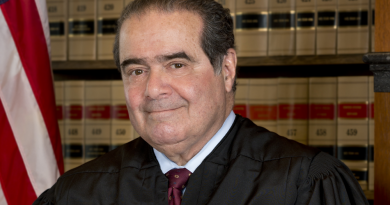Tazria 5771 — Rabbis for Human Rights
This is a d’var Torah I gave at Rabbis for Human Rights annual meeting yesterday.
At the beginning of this week’s Torah portion we have a simple commandment:
וּבַיּוֹם הַשְּׁמִינִי יִמּוֹל בְּשַֹר עָרְלָתו “On the eighth day you shall circumcise his flesh.”
The commandment to circumcise our sons is more than an aesthetic preference. The ritual is called “brit milah,” the covenant of circumcision, because it is not just a sign, but part of the covenant between God and the Jewish people.
But more than a covenant between God and the Jewish people, brit milah is also a covenant AMONG the Jewish people. In parshat Lech Lecha, God tells Abraham that any male who is not circumcised וְנִכְרְתָה הַנֶּפֶשׁ הַהִוא מֵעַמֶּיהָ אֶת-בְּרִיתִי הֵפַר , “that soul will be cut off from his people, he has renounced my covenant.” But why is an uncircumcised male cut off from his people? It’s because he rejected the covenant – he (or his parents) took him outside the covenant, so in a sense it’s not God that’s cutting him off, but the parents who decided against circumcising him.
When we think of covenants, we generally think of covenants that are between us and God, and covenants that are among the Jewish people. A covenantal relationship implies that there are two-way responsibilities: each party agrees to do certain things.
We have a covenant with God – and the essence of our covenant with God is that we agree to be God’s people, and God agrees to be our God.
We also have a covenant with our fellow Jews – we are like one big family, as the tradition teaches us כל ישראל ערבין זה בזה, all Israel is responsible for one another.
But as Rabbi David Wolpe has pointed out, there is an additional covenant that is also important: a covenant that precedes the covenant that God made with the Jewish people. The covenant with Noah, a covenant with all of humanity. The message of the rainbow is clearly that we are responsible not only for our relationship with God and our fellow Jews, but we are also in covenant with all of humanity and have responsibilities toward all of our fellow human beings.
Rabbis for Human Rights is unique as an organization that is concerned with all three of those covenants. In all of our work, we strive to bring a “Godly” perspective, to bring words and teachings of Torah to defending the human rights of all residents of Israel and the Territories.
In the last year we have done some excellent work on behalf of our “Jewish covenant.” We achieved a major victory in getting the “Wisconsin Plan” stopped, a program that was allowing business interests to exploit the unemployed. We have recently engaged in efforts to improve the scandalous situation of public housing in Israel. The stock of public housing is being depleted, and residents are occasionally evicted with scant attention paid to their economic situation or needs.
Our education department has continued its important work teaching Israelis the Jewish sources for human rights. Our Human Rights Yeshivas are continuing to attract the future leaders of the human rights movement in Israel; our mechina programs have helped over 500 young people examine the intersection between current events and Torah.
Our work on behalf of our fellow members of the Noahide covenant has also been proceeding apace. This was a difficult year in the West Bank, with the level of violence against property greater than in the past. We brought over 200 volunteers out to help with the olive harvest, and replanted trees that had been destroyed. Our legal department scored a number of successes in fighting illegal confiscation of Palestinian land in the South Hebron Hills.
We have also continued our engagement in interfaith work, deepening it with the launch of an interfaith women’s empowerment group in Hadera.
Financially, the organization is strong, with a budget of approximately NIS 5 million. Our biggest challenge financially is that most of the funds we receive are designated for particular projects, so the funds available for addressing administrative needs and new issues that come up are limited.
Last year we started a strategic planning process, reviewing our current activities in the context of the human rights situation overall in Israel and the Territories. That work is still ongoing, we hope to have a strategic plan finalized within the coming months.
I’m sure I speak for all of the leadership of Rabbis for Human Rights in thanking you, the members of RHR – you are the ones that enable us to do the work of serving God, the Jewish people, and our Gentile neighbors. Todah!

